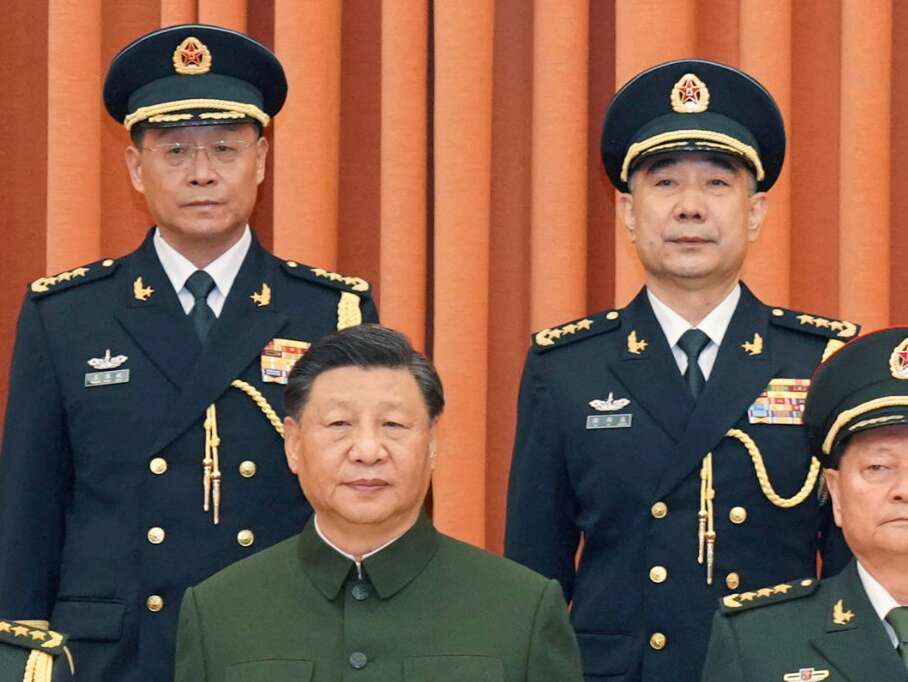Explosive Scandal: Xi Jinping's Rocket Force Shake-Up Exposes Corruption and Misconduct
Chinese President Xi Jinping faces challenges in his efforts to reform the military leadership, specifically the recent shake-up in the Rocket Force department and the allegations of corruption and misconduct that have emerged. These developments highlight the need for constant control and vigilance to ensure loyalty and discipline within China's armed forces.
Challenges Emerge as Xi Jinping's Rocket Force Shake-Up Raises Questions of Misconduct and Corruption Chinese President Xi Jinping's efforts to reform the military leadership have faced setbacks following recent upheavals in the People's Liberation Army (PLA) forces. A sudden shake-up in the Rocket Force, the department responsible for managing conventional and nuclear missiles, has raised suspicions of graft or other misconduct. This scandal could be a setback for Xi, who has sought to create an unquestioning and loyal armed forces.
Xi Jinping, often compared to a physician "eradicating the toxins of corruption and disloyalty," has long been committed to cleaning up the once extensively corrupt military leadership. However, the recent developments suggest that his reforms have not endured. The abrupt replacement of two top Rocket Force generals signifies a deep-rooted problem that has survived within the system. Experts believe that the allegations of corruption and misconduct within the Rocket Force are likely related to massive spending on China's nuclear expansion.
The Rocket Force, an arm of the military, has been a significant priority for Xi, who has invested considerable time, resources, and policy support into its growth. It manages the largest and most diverse missile program globally, containing China's 400 or more nuclear warheads. The signs of misconduct within the Rocket Force reinforce Xi's belief that intense scrutiny and pressure from above are necessary to keep Chinese officials in check. Xi's strategy includes constant inspections by party investigators, loyalty campaigns, and dismissals and arrests.
According to Joseph Torigian, an assistant professor studying elite politics in China, Xi believes that the danger never recedes, even with absolute leadership. Xi's tenure has been marked by efforts to clean up corruption and lax discipline within the PLA. Dozens of senior officers have been convicted of corruption and the buying and selling of promotions, once common, has been curbed. Xi's stronghold on power within the military is evident, with virtually all members of China's military elite owing their rise to him. However, the recent shake-up in the Rocket Force raises concerns and uncertainties.
General Li Yuchao, the top commander, was appointed by Xi just last year but has now fallen from grace, along with other senior officers. Experts suspect that these officers may be accused of siphoning funds from the massive spending on the rocket force's expansion. Xi Jinping's mission to reform China's military faces challenges as misconduct allegations resurface. His strategy of maintaining strict scrutiny and pressure has shown limitations, highlighting the need for constant control.
While questions regarding corruption and misconduct in the Rocket Force persist, Xi's hold on power within the military remains strong, with loyal allies occupying key positions. In conclusion, the recent shake-up within the Rocket Force and allegations of misconduct and corruption present a setback for Xi Jinping's reform efforts within the military. This development raises concerns about the enduring problem of corruption and the need for constant vigilance to ensure loyalty and discipline within China's armed forces.




